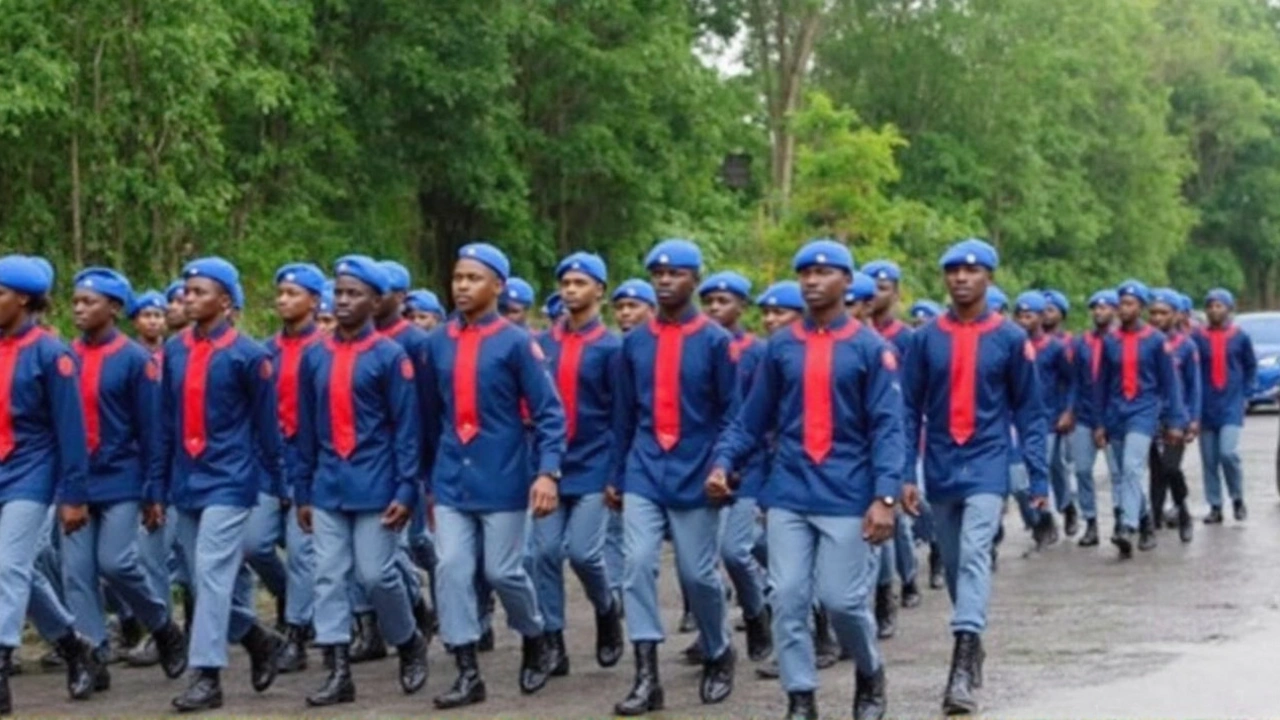- Bayern Munich Faces Hefty Transfer Fee to Secure Vincent Kompany as Manager May 23, 2024
- Man United beat Sunderland 2-0, Mount & Sesko goals ease Amorim pressure Oct 5, 2025
- Tragic Loss: Millwall Goalkeeper Matija Sarkic Dies at 26 Jun 15, 2024
- Tragic Road Accident Claims the Life of Tijani Babangida's Brother While Wife Receives Medical Care May 10, 2024
- Cavaliers Face Key Injury Questions Ahead of Pivotal Game 5 Against Pacers May 14, 2025
Paramilitary recruitment: what it is and how to spot it
Paramilitary recruitment can change a life fast. People get targeted with promises of pay, respect, training or a sense of purpose. This page explains what recruitment looks like, why it happens, and what you can do if you or someone you know is being approached. Read on for clear, practical steps you can use right away — act fast and safely.
Paramilitary groups are armed organisations that act like official forces but operate outside regular law. Recruitment means trying to sign up new members — through schools, workplaces, markets or online. Recruiters use money, status, fear, or ideology to persuade people. Young men are often targeted, but women and teenagers also face recruitment. Understanding tactics helps you spot signs early.
How recruiters reach people and why it matters now
Recruiters use personal contacts, social media, WhatsApp groups, and local networks. They may promise steady pay, training, or quick solutions to local problems like crime or unemployment. In areas with weak services or conflict, recruiting becomes easier. Recruitment fuels instability, harms communities, and can drag young people into violence or criminal activity. Communities lose trust and development stalls when recruitment spreads.
Common signs include sudden offers of money, invitations to secret meetings, requests to join training that looks like exercise or drills, pressure to stop talking about plans, and attempts to isolate people from family or school. Online red flags include private chats with strangers, links to violent content, and fast-shifting narratives about enemies or duty.
Knowing local laws matters. Some countries treat paramilitary groups as criminal gangs, others as terrorist organisations. Joining can carry arrest, loss of rights, or long prison sentences. Families should check legal steps and seek help from community leaders, police, or NGOs if recruitment is suspected.
What you can do if someone is being recruited
Start by listening without blame. If a friend or relative is being courted, ask open questions about who contacted them, where meetings happened, and what promises were made. Encourage delay: suggest waiting before attending any training or handing over ID or money. Keep records — screenshots, names, phone numbers — they help authorities or support groups.
Contact trusted local authorities or organisations that deal with youth, conflict or reintegration. In many African countries, NGOs, religious groups, and community elders run prevention programs and safe-exit pathways. If someone is at immediate risk, call local emergency services. Avoid direct confrontations with recruiters; these can escalate quickly.
Teach basic online safety: don’t accept friend requests from unknown accounts, verify claims about pay or mission, and avoid sharing photos or location info. If you work in a school or clinic, report suspicious approaches to management and push for awareness sessions so staff and students learn the signs.
If you need more help, check with local human rights groups, child protection services, or international organisations that support disengagement. Staying informed, keeping calm, and acting with local partners gives the best chance of protecting people from harmful recruitment.
FG Opens Paramilitary Recruitment for 30,000 Positions, Portal Live Until August 4
- Katlego Sean Mahaye
- Jul 16, 2025
The Nigerian government is recruiting 30,000 new staff for the NIS, NSCDC, NCoS, and FFS. Applications run from July 14 to August 4, 2025, and require strict eligibility criteria. Prospective applicants are urged to use the official portal and to beware of recruitment scams.
